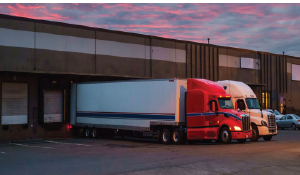


Top Tips for Amazing Freight Procurement Customer Service
Your phone rings. It’s “that customer”. Making her happy could mean a very profitable month. This is a huge opportunity, but she’s notoriously hard to please. What can you do to ensure your customer is always happy? These tips may seem obvious, but in the heat of the battle, sometimes we could use a reminder. Communication: Make sure to communicate everything to your customer honestly, especially if it is negative news. Whether it be a truck breakdown, missed pick up or delivery, or not being able to cover a load at the contracted rate, the customer needs to hear the truth with no sugarcoating. And don’t delay; when bad news needs to be delivered it should be right away so your customer can react quickly and make adjustments as needed. Your customer will have more faith and trust in you, and your company, if honest communication is constantly flowing. Adaptability: If you’re in the logistics industry, you know freight procurement management is a demanding job. There are daily challenges, so you must be flexible for your customer. You must always be available to handle last-minute “surprises” your customer may have. And the key is to handle these urgent transportation matters with a smile on your face and a positive tone in your voice. Advise: Strong customer success advisors are not order takers; they are not “yes” people. Instead, strong freight procurement success advisors help their shipper customers solve problems, which means they are not afraid to challenge decisions to ensure their customer sees things from all viewpoints so the best possible decisions can be made. After years of providing customer...
How to Maintain Truckload Cost & Service During Disruption (Do You Have A Safety Net?)
Any logistics professional knows that freight rates jump up and down as supply and demand for over-the-road capacity fluctuates. Maintaining fair truckload cost, while delivering goods on time, has always been one of the biggest struggles for transportation teams, especially when disruption occurs. US truckload rates have decreased some 10% (brokerage and contract blend) YoY, and they continue to ease back towards normal after an unpredictable couple of years. Many analysts expect freight rates to continue to drop into next year. But all it takes is one major disruption. For example, the rail strike could have been devastating for shippers. If the strike had occurred, on a daily basis more than 50,000 intermodal loads would have been converted to over-the-road. This would have caused truckload rates to increase by two to three times depending on the origins and destination. That said, shippers are still facing other perils, such as inflation. This makes finding the optimal shipping method more important than ever, or at minimum finding a contingency plan or safety net. Unfortunately, many large shippers learned the hard way and finally realized that traditional freight procurement processes can not keep up with disruption. For example, the RFP process locks in freight rates with contracted carriers, and only provides peace of mind that loads will be accepted and delivered on time when the freight market is soft and the shipper is over-paying the contracted carrier. When the market tightens, when disruption occurs, contracted carriers decline contracted rates in lieu of more lucrative business leaving the shipper to scramble to find another truck, or ante up and pay more. Forward-thinking shippers have reimagined...
Are You Prepared for the Peak Shipping Season?
2022 has had its fair share of supply chain disruption. Trucking rates through 2022’s Q3 haven’t seemed as volatile as in months past, as fuel prices have stabilized a bit. But even if things like fuel prices and inflation have peaked, Q4 is too vital for many businesses not to be prepared. Now that we’re heading into the Holidays, the peak trucking season is ramping up which will bring on more chaos and fluctuation in truckload capacity, service and rates. The key question to all large shippers is… how have you prepared for it? To help fend off potential risk, some shippers have continued to lock in long-term carrier contracts. But unfortunately, RFPs produce fixed pricing that does not fluctuate with market demand resulting in the shipper paying too much or receiving horrible service. Innovative shippers have taken a much deeper look inside freight management protocol, and they have determined that traditional practices, such as the time-consuming RFP, no longer work. Why? Because static and manual processes can’t keep up with today’s market turbulence. They don’t provide the flexibility needed to pivot as disruption occurs. Forward-thinking shippers have embraced technology and industry 4.0 concepts, such as automation, AI, and visibility/ data. They have spent time and money overhauling critical supply chain processes, such as freight procurement, to help keep goods moving. Shippers who continue to rely on decades-old processes, like RFPs and freight brokers, will eventually lose their supply chain competitive advantage, and worse erode their margins and profitability. Automation & Data Freight procurement automation utilizes AI to help shippers always deliver goods on time, and at a fair market...
While Shippers Struggle, Popular 3PLs Thrive!
Supply chain woes, high prices of fuel, and budget overages have many large retailers, manufacturers, and distributors that rely on shipping facing uncertainty. But not everybody is feeling the squeeze of these problems that have been ongoing since the onset of the pandemic. Popular third-party logistics companies (3PLs) – as well as large freight brokers – have taken advantage of this situation to the tune of record-setting earnings for multiple months in a row, according to Transport Topics. That’s good news for them, but many large shippers are still scrambling to find ways to trim expenses. Innovative shippers have turned to smart technology and automation to help remove waste. Why 3PLs & Freight Brokers Are Thriving 3PLs help large shippers streamline critical supply chain operations such as distribution, warehousing, and packaging. Similar to freight brokers, most 3PLs also offer brokerage services and act as middlemen to set up shippers with third-party carriers. Unfortunately, as disruption occurs in the freight market, freight middlemen know that shippers are willing to pay an arm and a leg to move goods. And with hidden margins, these middlemen charge upwards of 30% more to pad their own pockets- hence record-setting earnings. Take Control of Shipping With Technology Award-winning, AI-powered automation technology helps shippers uncover resilience, sustainability, and cost reduction opportunities by eliminating the need for middlemen. By automating freight procurement, 80+ configured shipper attributes-- along with artificial intelligence-- dynamically match loads directly to the right carrier, at the right time, location, and price. Logistics can be expensive, but it doesn’t have to be. Automating freight procurement helps shippers overcome freight market volatility by always delivering...
Can A Shipper Really Balance Transportation Cost With Service (OTD)? Yes They Can.
Costs surrounding freight always fluctuate up and down. The trick for shippers is to deliver the goods their customers expect on time, without acquiring and then passing down increased transportation costs. There’s more focus on transportation budgets and service than ever before, and utilizing software-- that outputs real-time data-- will take the mystery out of how shippers can successfully balance transportation costs with service levels. Because as transportation insiders know all too well, shippers are either over-paying and receiving great service, or under-paying and receiving horrible service. The new way forward for savvy shippers is to utilize a combination of automation and data intelligence to always deliver goods on time while paying a fair truckload price. Automating Freight Procurement Procedures It seems overnight, the digital transformation and new emerging technologies have instantly changed supply chain procedures to become more agile to help overcome new challenges. For example, instead of relying on freight brokers and RFPs to source compliant carriers, innovative shippers have turned to automation technology, which uses a self-regulated freight marketplace to dynamically source compliant, asset-based capacity at the right time, place, and price! On average, these shippers are saving over 17% on truckload cost, while generating 97%+ OTD. Closing the Freight Procurement Data-Gap Forward-thinking shippers have also prioritized the need to close the massive data gap associated with freight procurement by choosing to only do business with partners that provide 100% data transparency. Once the data gap is filled, shippers are then empowered to make stronger, data-driven decisions surrounding how best to optimize their carrier network so they can always deliver goods on time, at fair market price. ...
Shanghai, Back to School, Fall Peak, And More– Are You Prepared?
Michael Paul, Sleek's VP of Sales, has been helping shippers source qualified carriers for years now, and based on his expertise and what he's witnessing overseas, he is predicting a high-water mark of containers will soon generate another capacity crunch at US Ports. To help support his point, Michael Paul said, "The Port of Savannah this past week moved 255K TEUs, and the same week in 2021 only moved 170K. Thankfully, port leadership had strong foresight and created a number of container yards which resulted in only 12-15 containers on water, versus 40-50." Here are additional challenges, and what shippers can do now to proactively prepare to weather the approaching capacity crunch storm. New Shanghai Quarantine Measures Will Have Resounding Impacts This past April and May, as part of continued quarantine efforts, Shanghai closed several important highways which negatively impacted trucks carrying exports bound for city ports. To help mitigate delays, shippers began to rely on Ningbo and other smaller loading ports along the Yangtze River as alternate port destinations. As a result, the Port of Ningbo is now showing an increase in congestion. Just as production and manufacturing levels were resuming in Shanghai, new restrictions were implemented which will negatively impact the supply chain and freight procurement. During the initial lockdown period, a trucking slowdown led to raw material shortages for large companies such as Volkswagen and Tesla. “Before the latest restrictions, truck drivers were still required to provide a nationally recognized 48-hour negative Covid test result and traffic permit”, said Akhil Nair, Asia-Pacific VP at Seko Logistics. He also noted that local governments continue to demand more testing....
Sleek Technologies Announces Joanne Savage from AdvanSix as 2022 ISY (Innovative Shipper of the Year) Award Winner
AdvanSix, a leading producer of differentiated products in the industries of nylon solutions, chemical intermediates, and plant nutrients, saved over $100,000 in truckload costs while delivering goods on time 97.6% during extreme market conditions when other shippers struggled to maintain cost and service. Chicago, IL June 2, 2022 - Joanne Savage, Logistics Manager at AdvanSix, was recently named the 2022 Sleek Technologies ISY Award Winner for her excellence in freight procurement automation. Each year Sleek Technologies recognizes one customer who has embraced technological advancements to strengthen freight procurement results. Award recipients uncover resilience, sustainability and cost reduction opportunities for their company, and in turn their end customers. “Joanne is a true trailblazer,” said Mike Nervick, Sleek Technologies CEO. “As an early adopter of freight procurement automation, Joanne embraced new technology which mitigated rising truckload cost and poor service levels for AdvanSix during unprecedented times for transportation professionals.” Joanne's willingness to embrace new technology resulted in a truckload savings rebate of $114,524 and an industry-best on-time delivery rate of 97.6%. This is no simple task, especially during volatile freight market conditions when many other shippers struggled to maintain cost and service levels. Joanne has risen to the occasion with a strong work ethic and an innovative spirit, successfully managing transportation efforts for AdvanSix. “Joanne understands the importance of servicing the customer at a high level while still controlling costs in a volatile marketplace,” said Dean Corbolotti, Sleek Technologies VP Managed Services. “During the supply chain crisis when reliable and cost-effective freight capacity was hard to find, Joanne delivered 100% on time delivery multiple times when most shippers were lucky to deliver...
Using AI to Battle Rising Diesel Costs
There’s not much shippers and carriers can do when decisions or events on the other side of the globe impact the price of fuel. But just because fuel gets more expensive doesn’t mean business stops. According to the American Trucking Association, trucks moved around 72.5% of freight in the United States by weight in 2020. Since the majority of those trucks run on diesel fuel, seeing a major increase in the price of a gallon of diesel - like the one the U.S. is in the midst of right now – can have an immediate impact on profits. The average price for a gallon of diesel jumped up to $5.623 on May 9, according to the Department of Energy, marking a 46.3-cent leap over the last two weeks. As recently as Valentine’s Day, diesel was only $4.019 per gallon. A year ago, it was $3.186 – marking a rise of almost $2.50 per gallon over the last 12 months. Trucking companies generally apply a fuel surcharge to cover those inflated fuel prices, but those increases often get passed on to the customer. It’s hard to predict when the rise will stop – or even slow down – so it’s up to shippers to find other avenues to reduce costs. As diesel prices continue to rise, shippers are faced with the dilemma of charging their customers more or operating at reduced margins – unless they can find other ways to cut costs. Innovative shippers have embraced AI-driven tools for automation that have helped offset rising fuel costs. By using these tools, it can lower the overall cost of shipments, ensure that goods are...
